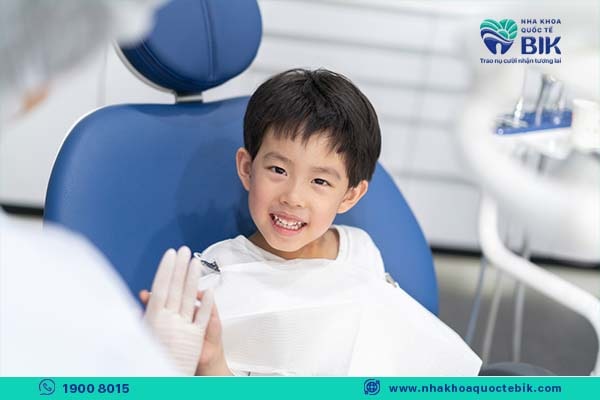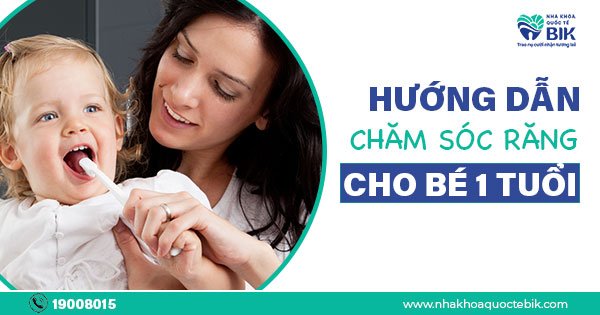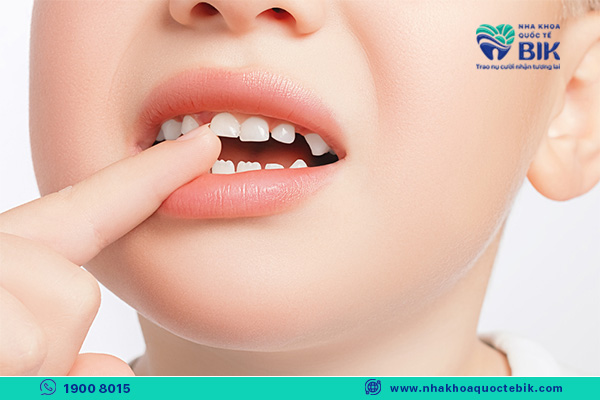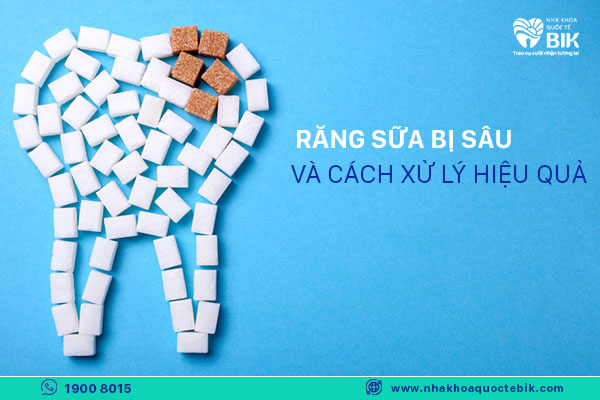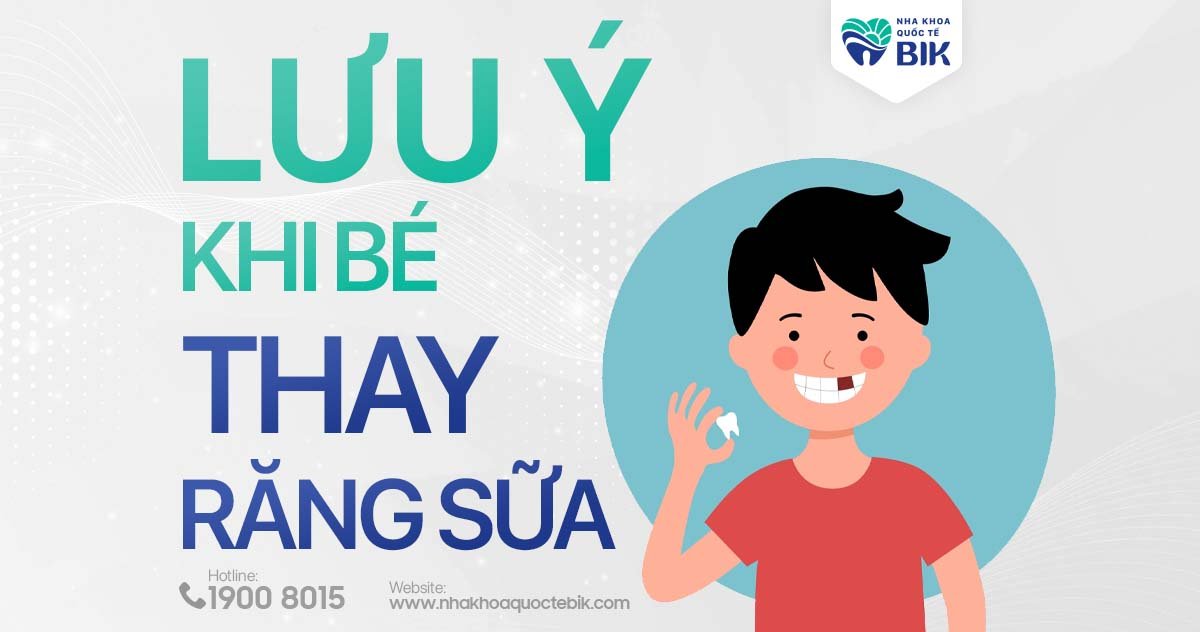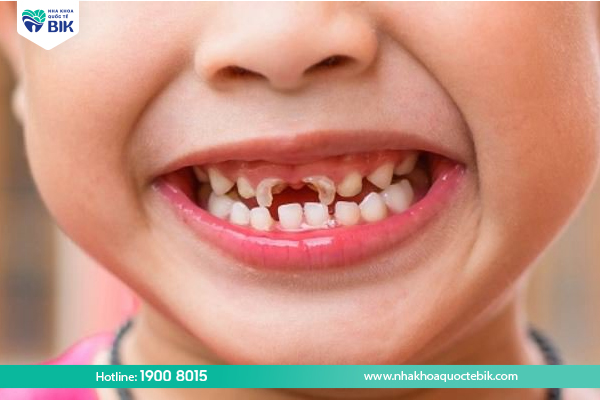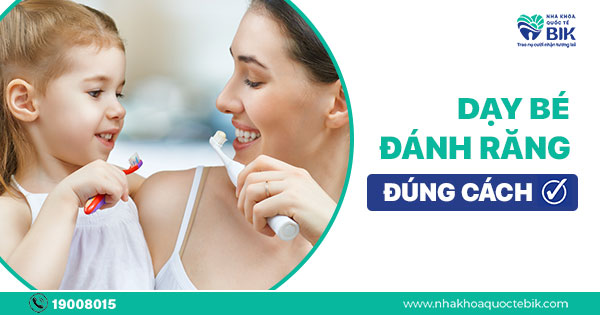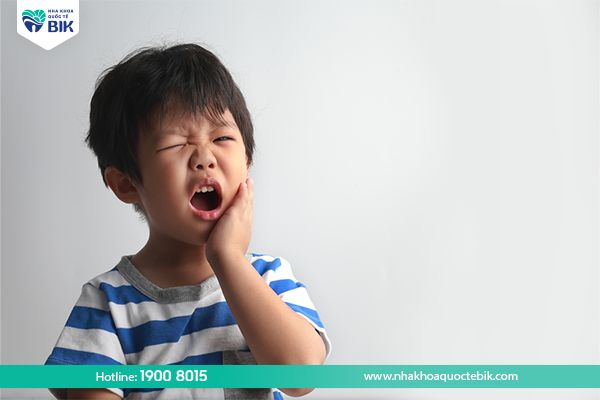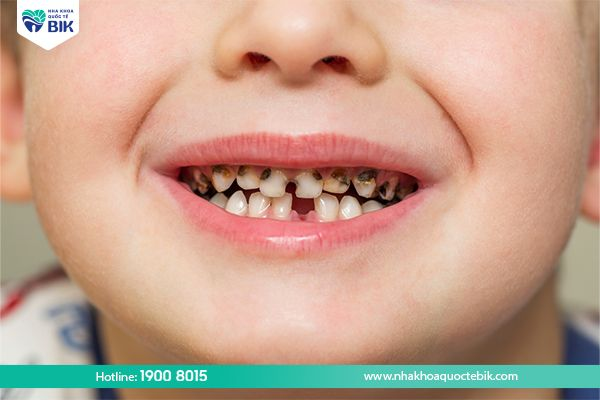The process of forming and developing baby teeth is the first and very important stage, determining whether the baby’s oral health will be good or not in the future. So how to take care of baby teeth properly? Let’s learn with BIK International Dentistry about how to take care of baby teeth to protect the smiles of our young children. 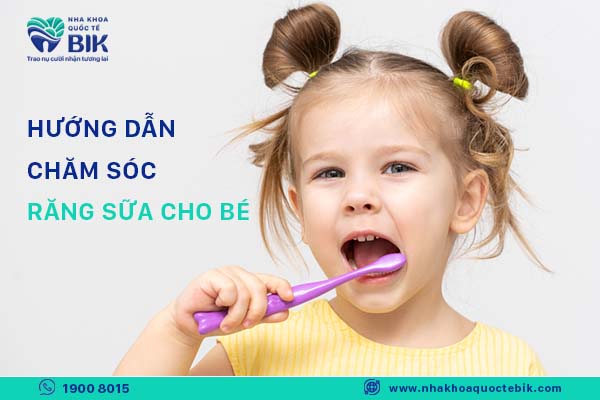
Do you know how to care for baby’s baby teeth?
1.Overview of baby teeth
Although baby teeth are only temporary teeth and will be replaced by permanent teeth, the importance of baby teeth for your baby’s oral health and jaw structure cannot be denied. So do you fully understand baby teeth?
What are baby teeth?
Baby teeth are teeth that form and grow during the development stage of children between the ages of 4-24 months. In a few cases, baby teeth have grown when the baby is born or in the first month of life, because in fact, baby teeth have formed while the baby is still in the womb but have not yet grown out of the gums.
Normally, the baby will grow 20 main teeth, including 10 upper molars and 10 lower molars. When baby teeth are formed, this is also the time when the baby can learn to eat and chew. Depending on each child, but at the age of about 2 – 3 years old, the baby teeth will grow fully, but there are still a few cases where baby teeth grow later. And at about 5 – 6 years old, baby teeth will begin to be replaced by permanent teeth.
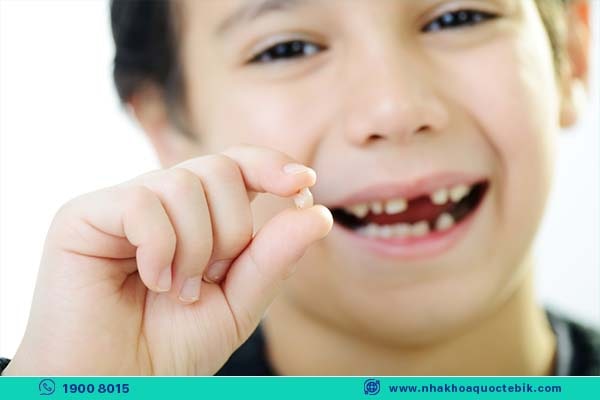
How important are baby teeth
Although baby teeth will fall out, the temporary presence of baby teeth has a long-term effect on the oral health of children. Here are some effects of baby teeth:
– Baby teeth will help children chew better.
– Help the baby’s jawbone develop normally.
– Baby teeth help children pronounce better. Children who have damaged baby teeth too early, leading to early tooth extraction, will cause the child to lisp and have difficulty pronouncing.
– Baby teeth play a role in holding the position for permanent teeth to grow in the right position. If baby teeth are lost before they are ready to fall out, it will lead to a narrowing of the available space for permanent teeth, causing permanent teeth to grow in the wrong position.
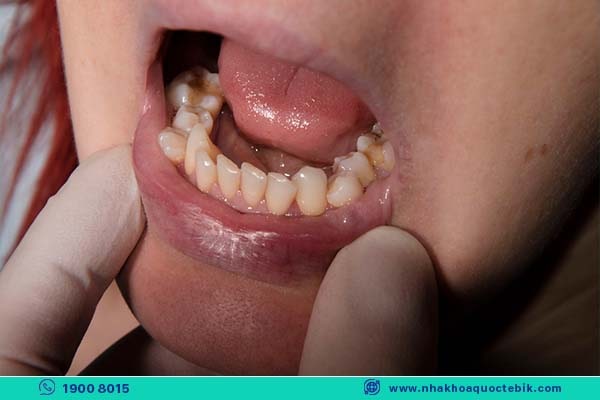
2. How long do baby teeth last?
Each child will have a different teething process, some children will grow early, some will grow later. But most baby teething will occur from 6 months to 3 years old.
Age of baby teeth eruption
– Central incisors: 6–12 months
– Lateral incisors: 9–16 months
– First molars: 13–19 months
– Canines: 16–23 months
– Second molars: 22–33 months
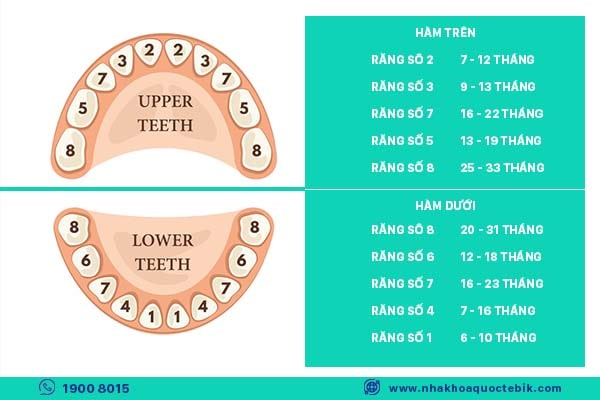
Age of baby teeth replacement
When a child is about 6 years old, baby teeth will begin to fall out. The baby teeth will gradually be replaced by 32 adult teeth. The tooth replacement process will last until the child is about 12 years old. But depending on each child, the tooth replacement process will end sooner or later.
3. Harmful effects of not caring for baby teeth or caring for baby teeth incorrectly
Tooth decay
Under each baby tooth, there is a permanent tooth bud preparing to grow. Therefore, if baby teeth are decayed, bacteria can damage the gums, causing permanent teeth to grow crookedly, grow in the wrong position, negatively affecting the bite and jawbone.
Baby tooth decay if not treated properly can also damage the tooth pulp causing pain. In some cases, the tooth pulp becomes infected leading to necrosis and tooth abscess.
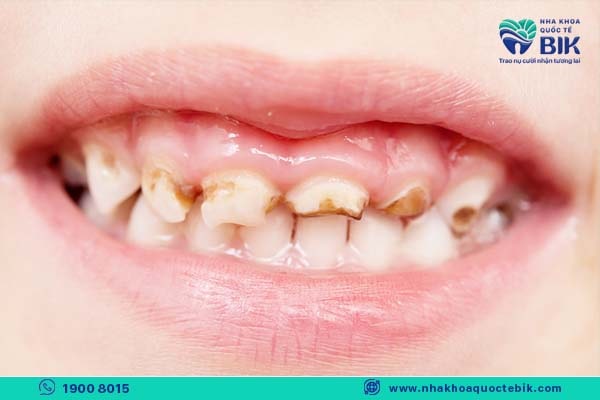
Gingivitis
The mechanism causing gingivitis is the accumulation of plaque (caused when excess food on the teeth is not completely removed) when parents do not know how to use a toothbrush for their children. The prominent feature of gingivitis is red swelling, a part of the gum is separated from the tooth, the child is very susceptible to bleeding gums even with a slight collision.
Bad breath
Inadequate and incorrect oral hygiene causes bad breath in children, accompanied by unpleasant breath.
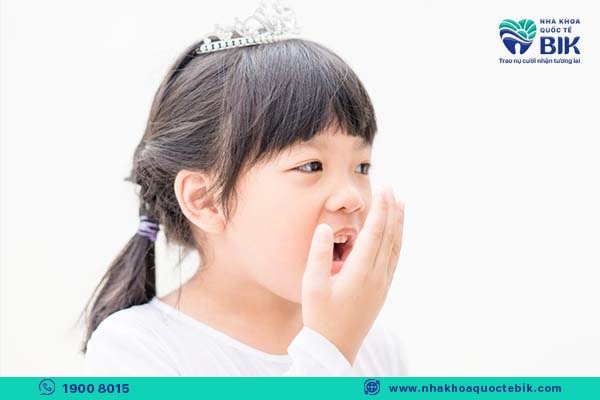
4. Instructions on how to best care for baby teeth
Children cannot take care of their own teeth, so they need the help of their parents in daily oral hygiene. Parents, please follow these notes:
From 6 to 8 months old is the age to start taking care of your baby’s baby teeth
After the baby’s first tooth appears (around 6 months old), parents should start taking care of their baby’s teeth with gauze soaked in diluted salt water to clean teeth, gums, and tongue.
In addition to breastfeeding, at this stage, babies need to be supplemented with nutrition through solid foods.
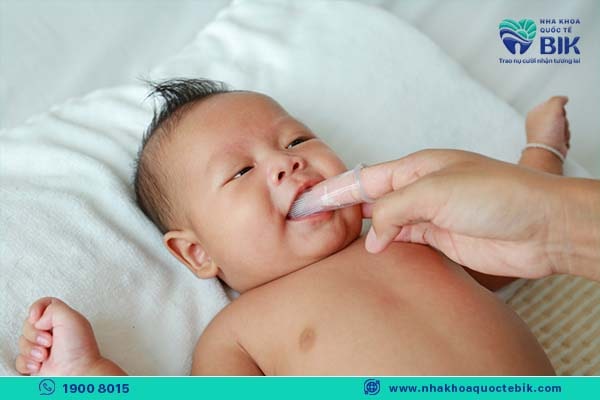
From 2 to 3 years old – Need to pay more attention to how to care for baby teeth at this age
– Baby molars grow up on the jaw. This is the time when parents apply the correct tooth brushing method to clean the child’s mouth.
– Choose a toothbrush: Small, soft toothbrush with the best quality.
– Toothpaste: Parents should choose toothpaste tubes containing fluoride with fruit flavors to stimulate children’s interest in oral hygiene.
– Toothbrushing instructions: Hold the toothbrush with your fingers, similar to holding a pen. Move the toothbrush gently vertically from top to bottom.
– Angle the toothbrush to the child’s gums at a 450 angle.
– Encourage and create excitement for brushing your child’s teeth.
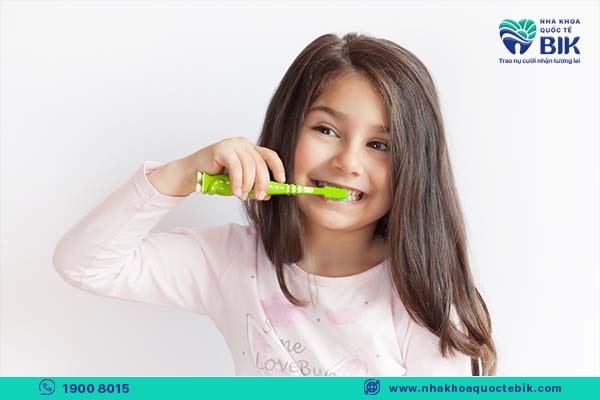
How to care for baby teeth for children from 3 to 6 years old
The baby teething process ends with the full appearance of 20 teeth on the jaws when the child is 3 or 4 years old. During this period, parents should observe and guide their children to brush their teeth properly: Brush the outer surface in the direction of tooth growth (vertical), the chewing surface back and forth horizontally. Brush the inner surface vertically, avoiding missing the tongue surface.
Children over 3 years old should use toothpaste with a content of 1350ppm to 1500ppm. Do not overuse it because it can damage teeth, vomiting leading to diarrhea.
In addition, maintain brushing your child’s teeth twice a day, in the evening before going to bed and in the morning after waking up.
Limit children from eating too many sweets, carbonated soft drinks, etc.
In addition, in the daily nutritional menu, it is necessary to pay attention to adding foods high in fiber and tough such as beef, carrots, green vegetables, corn, nuts, fruits, etc. to help the gums, jaw bones, facial muscles develop, while stimulating the process of tooth replacement and permanent tooth eruption to take place smoothly.

From 6 to 9 years old – how to take good care of baby teeth
Parents continue to observe and monitor the oral hygiene process in children. Check your child’s teeth regularly to detect early pathological abnormalities (tooth decay) or physiological changes (loose teeth, tooth buds emerging) to promptly take your child to the dentist. This is also the age when your child begins to grow permanent teeth and replace baby teeth.
The ideal brushing time is 2-3 minutes. If you brush less, it will be difficult to completely clean food debris, and brushing longer will easily cause tooth wear.
Let your child use dental floss and mouthwash to remove leftover food and plaque in places where the toothbrush cannot reach.
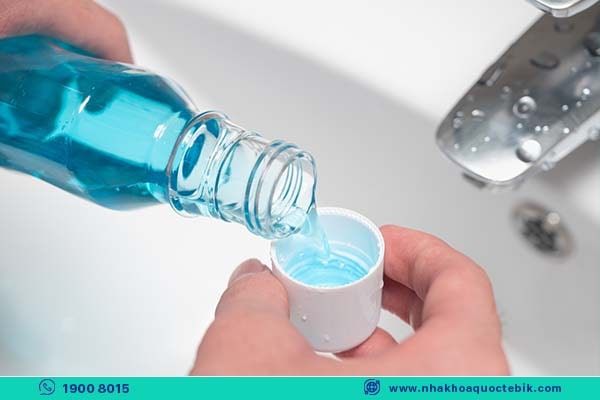
5. Regular baby teeth care at the dentist
Baby teeth are the first teeth that give children the opportunity to explore and build proper oral care habits. Healthy baby teeth will create the premise for healthy permanent teeth to develop. Therefore, parents should plan to take their children to the dentist every 6 months to closely monitor their baby teething journey.
If you encounter problems such as baby teeth falling out too early or too late, disorder in the order of permanent teeth eruption, abnormal shape, structure, color or arrangement, you need to take your child to see a dentist to avoid future deviations in the child’s teeth.
Hopefully, the information in the above article will help parents gain more knowledge about caring for their children’s baby teeth. If you have any questions, do not hesitate to contact BIK International Dental Clinic for more detailed advice.
